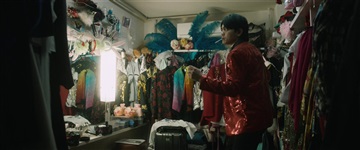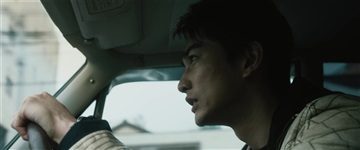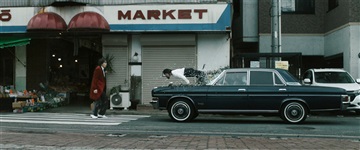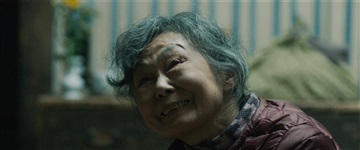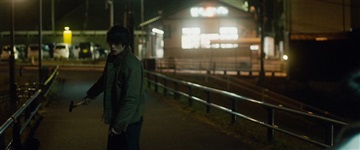Jam (2018)
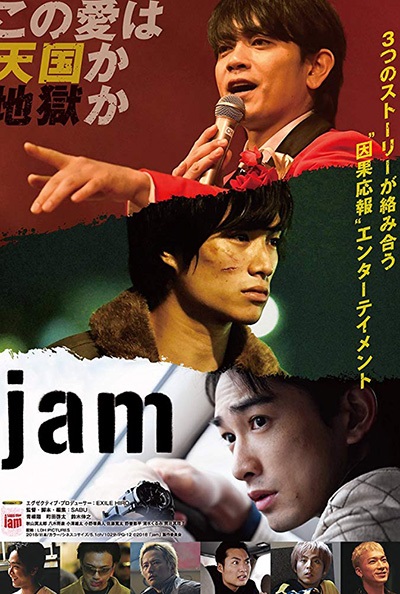
Sabu's JAM begins near the end, with a car racing through the city streets with a woman in the back unconscious and bleeding. There is a crash... and we cut back in time to learn more about one of the parties involved, thus beginning a curiously non-linear story about three characters and the night their lives intersect.
First is Hiroshi, a handsome singer whose audience is entirely middle aged women and whose relationship with his fans borders on predatory. Next is Tetsuo, just released from prison and on the warpath after his friends let him take the fall. Finally there is the driver, Takeru, who once had a vision telling him that if he performed 3 good deeds every day his girlfriend would eventually wake from her coma.
JAM is the closest Sabu has come to his early work in a long time structurally, with intersecting tales of lives subject to the vagaries of fate reminiscent of his early comedies like Dangan Runner and Drive - and there are several callbacks to those films here. Tonally it is the darker and more savage Sabu of recent years (decades?) though. There are moments of black comedy but none of the laugh out loud gags you find in Postman Blues or Monday. In some respects it's closer to the ironically titled Happiness in style.
It is crafted with the same attention to detail and technical precision as any of his films, keeping the plates spinning as the different plot strands are woven together (loosely) without needing to resort to exposition. There is a mid-film discussion on the subject of karma that indicates the themes Sabu is exploring, but the participants discourage thinking about it too deeply.
By far the most enigmatic character in the film is Tetsuo, an intense presence whose primary interactions involve a hammer as he tears through Yakuza in a series of increasingly brutal fight scenes quite unlike anything seen in a Sabu film before. If you thought OLDBOY was peak hammer, think again.
JAM has proven to be one of the hardest Sabu films to track down, though these days I guess there aren't many that aren't. The only physical release was in Japan, expensive and unsubtitled - thankfully some generous translator has done a fansub. It continues to mystify me that his films are neglected outside of Japan and Germany, they really do deserve to be much more widely seen.
